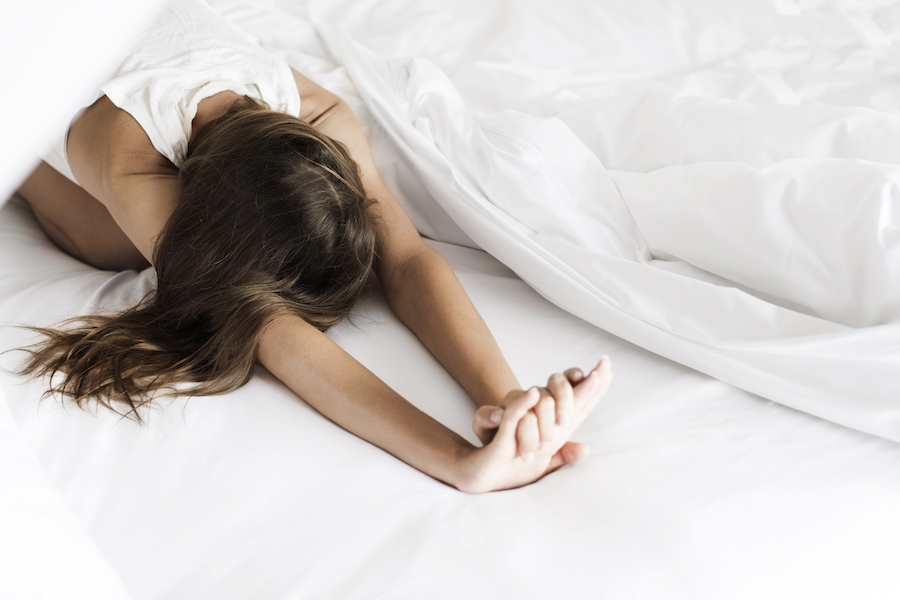Anxiety treatment addresses more than emotional stress—it can also improve sleep quality. For individuals struggling with insomnia or disrupted sleep patterns, anxiety is often a contributing factor. The relationship between the two is complex, with each condition amplifying the other. By identifying and treating anxiety at its core, many people experience better rest, fewer nighttime disruptions, and improved overall health.
Anxiety can lead to sleep disorders by increasing mental alertness and muscle tension at night. When the mind stays active—replaying events, worrying about the future, or anticipating stress—falling and staying asleep becomes difficult. Over time, this cycle creates frustration, sleep deprivation, and increased anxiety, making it harder to break free without help.
Understanding the Link Between Anxiety and Sleep Disorders
Sleep and anxiety are regulated by overlapping systems in the brain. Elevated stress hormones, such as cortisol, often rise in people with chronic anxiety. These hormones interfere with the body’s natural ability to wind down in the evening. Racing thoughts, shallow breathing, and physical restlessness make it difficult to reach restorative sleep.
Even when sleep occurs, anxiety can prevent deep sleep stages from taking hold. Individuals may wake frequently during the night or feel unrested in the morning, even after several hours in bed. Sleep disorders linked to anxiety include insomnia, restless sleep, and delayed sleep phase disorder. In some cases, anxiety may also contribute to sleepwalking, nightmares, or teeth grinding.
The longer these patterns continue, the more distressing they become. People with sleep issues often begin to fear bedtime or feel pressure to fall asleep quickly. These feelings reinforce anxiety and interfere with the body’s ability to relax. Effective anxiety treatment breaks this cycle.
Treating Anxiety Supports Better Sleep
Treatment for anxiety varies based on individual needs, but common approaches include cognitive behavioral therapy, medication, and relaxation training. Each method addresses specific symptoms while also supporting better sleep. Cognitive behavioral therapy (CBT), especially the version focused on insomnia (CBT-I), helps individuals identify anxious thought patterns that keep them awake. Through structured sessions, people learn to challenge negative beliefs about sleep, reduce worry, and create healthier bedtime routines.
For some, medication plays a short-term role. Anti-anxiety medications or sleep aids may be prescribed by a licensed provider to reduce acute symptoms. These medications are often used in combination with therapy and lifestyle adjustments to avoid long-term dependence. Mindfulness techniques also support anxiety treatment. Breathing exercises, guided relaxation, and meditation can calm the nervous system before bed. When practiced regularly, these techniques help signal the brain that it is time to rest, even after a stressful day.
Creating an Environment for Rest
In addition to formal anxiety treatment, behavioral strategies improve sleep hygiene. A consistent sleep schedule, a cool and dark bedroom, and screen-free time before bed create a physical environment that supports rest. Avoiding caffeine and alcohol, especially in the evening, also reduces sleep interruptions.
Establishing a wind-down routine helps the brain shift into a restful state. This may include light stretching, journaling, or listening to calming audio. Over time, these activities become sleep cues that reinforce a predictable sleep pattern. By combining medical and behavioral support, anxiety treatment becomes a long-term solution—not just a quick fix. Many individuals report improved focus, energy, and mood after consistent treatment, all of which are supported by better sleep.
Seek Help with Anxiety Treatment
Sleep problems that persist for more than a few weeks should not be ignored. If anxiety makes it hard to fall asleep, stay asleep, or wake feeling refreshed, professional support is worth considering. Addressing anxiety does more than improve sleep—it contributes to emotional stability, physical health, and quality of life. Anxiety treatment offers a pathway toward better rest. By treating the source of sleep disruptions, individuals can break the cycle of worry and fatigue. With support, restful nights and brighter mornings are not just possible—they are sustainable.









Leave a Reply